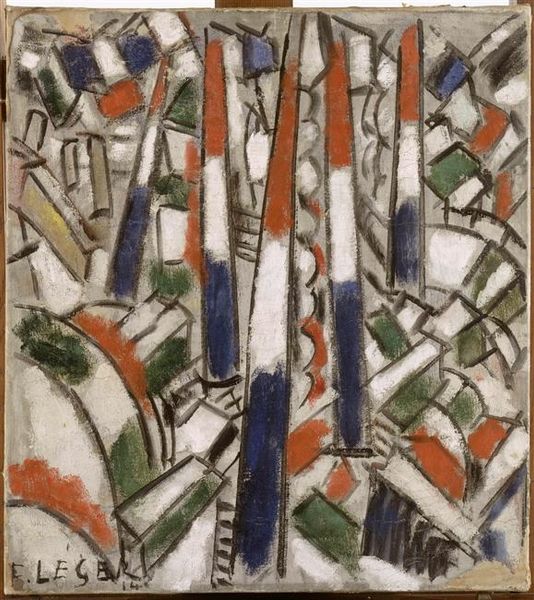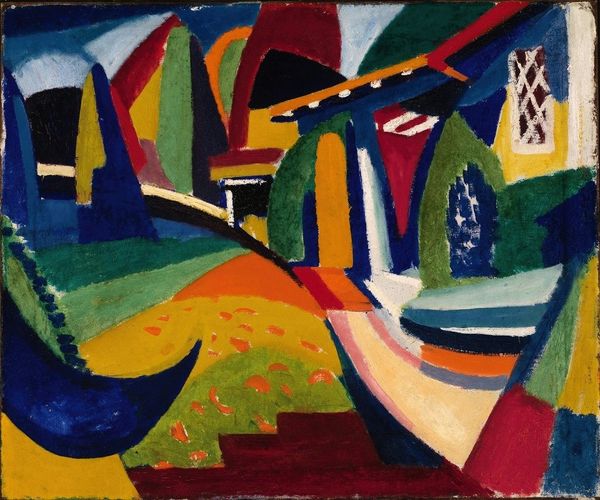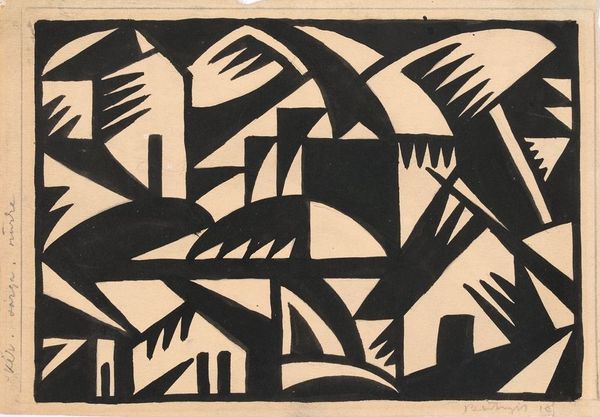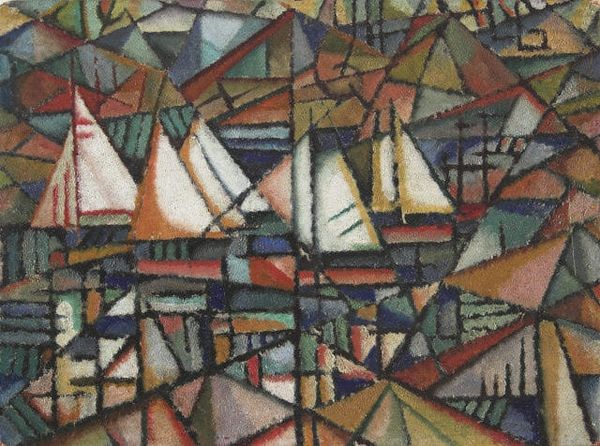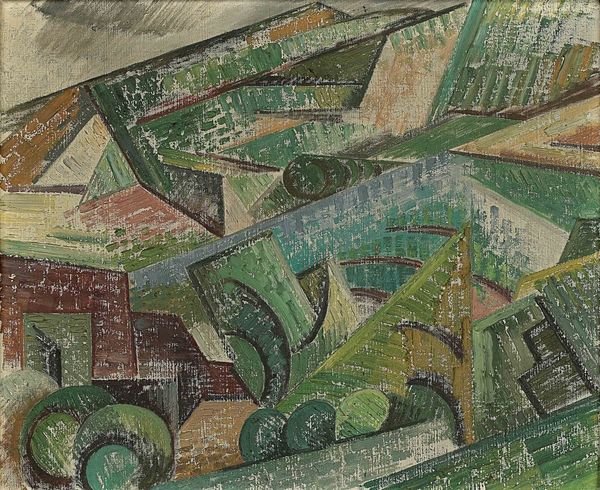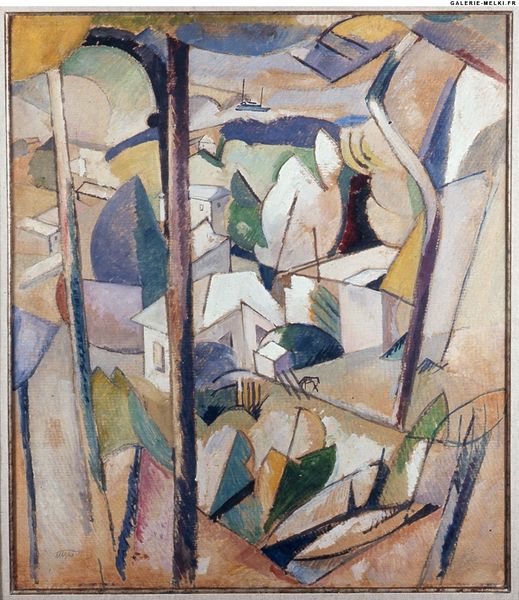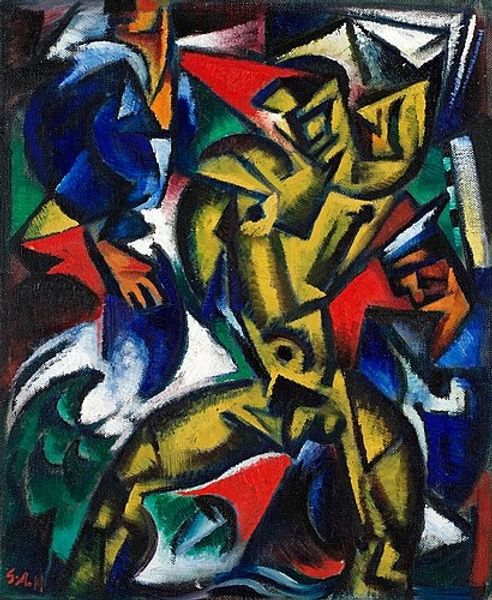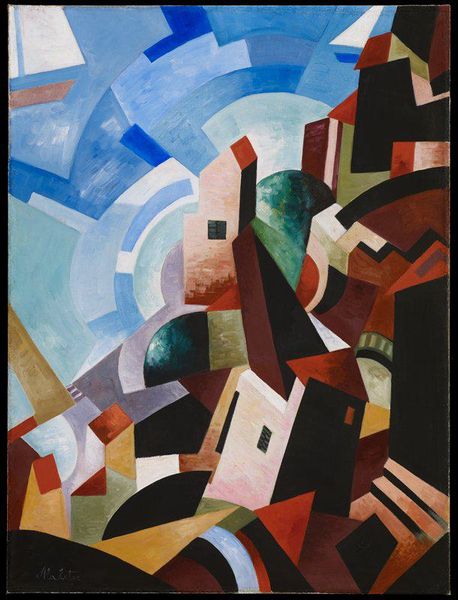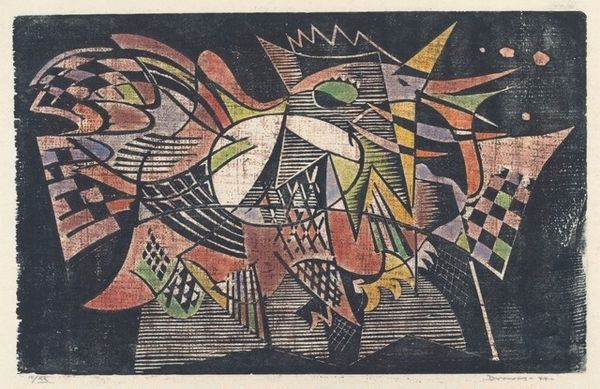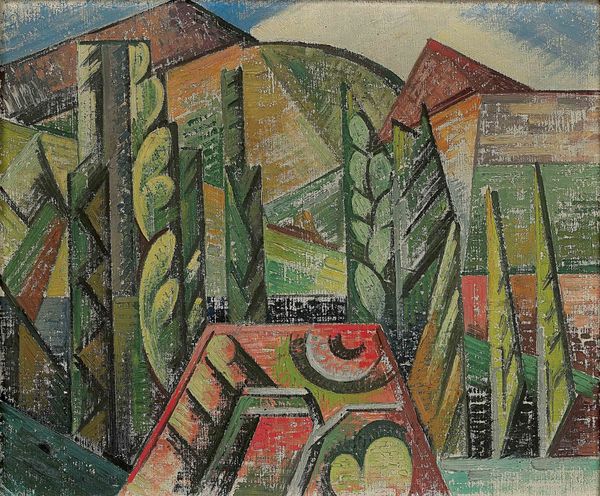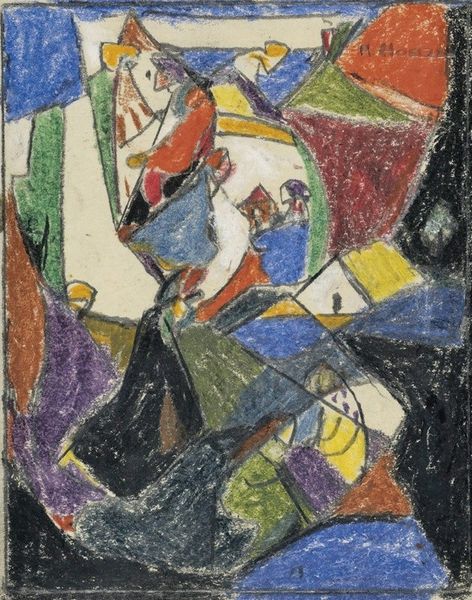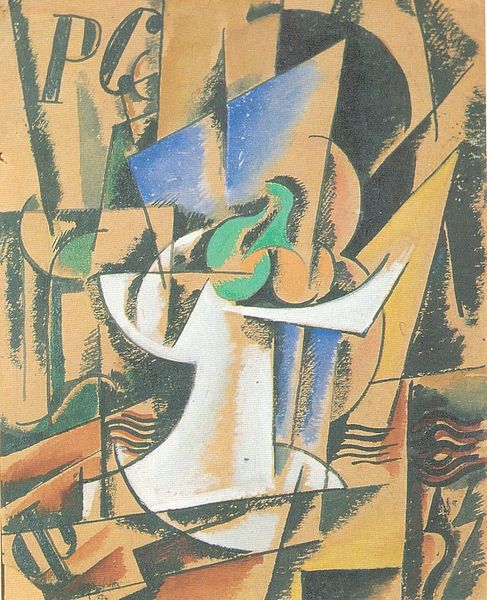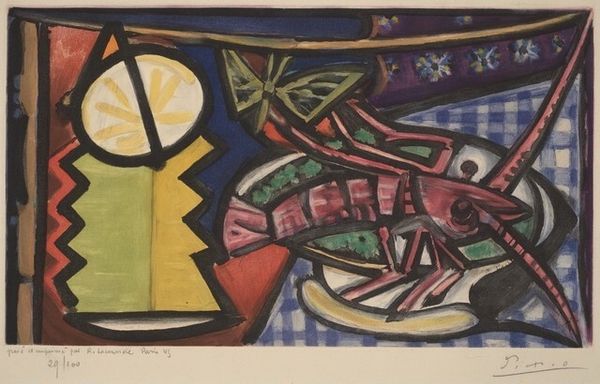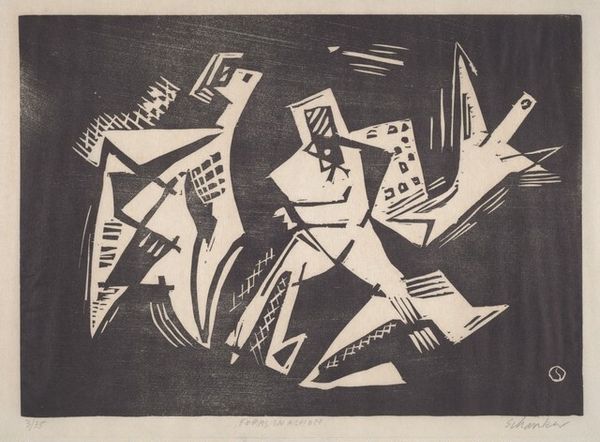
mixed-media, painting
cubism
mixed-media
painting
landscape
figuration
abstraction
Copyright: Sandor Bortnyik,Fair Use
Editor: So this is Sándor Bortnyik's "Landscape with House," painted in 1918, created using mixed media. There’s a striking, almost jarring use of cubist forms here, like fractured facets of a landscape, with abstracted figures inhabiting the space. It's a chaotic yet contained image. How do you interpret this work within its historical context? Curator: Seeing this piece, I am immediately struck by its relationship to the socio-political turbulence of 1918. Considering the tumultuous backdrop of the First World War and the collapse of empires, this fragmented landscape feels like a visual manifestation of a world being torn apart. Do you see how the fractured forms disrupt traditional notions of perspective and stability? Editor: Yes, the lack of a stable horizon line definitely creates a sense of unease. The sharp angles and contrasting colors also feel quite confrontational. Curator: Exactly. This confrontational quality might reflect Bortnyik’s engagement with avant-garde movements, using abstraction as a tool for social commentary. How does the distorted representation of the house, traditionally a symbol of stability and home, resonate with you, given this context? Editor: That's a great point. The house, which is almost unrecognizable, seems to suggest a loss of security, perhaps a questioning of traditional social structures. Curator: And think about the role of the figures within this distorted landscape. Their presence suggests a disrupted connection to their environment, reflecting broader anxieties around displacement and alienation. What are your thoughts on the relationship between these figures and the abstract landscape? Editor: They almost seem like ghosts within the landscape, disoriented and disconnected. Looking at this, I realize that the abstraction isn't just about form, it's about conveying a very specific emotional and political experience. Curator: Precisely! Art like this serves as a vital record of historical trauma and social upheaval, prompting us to confront difficult truths about the past and its continuing impact. Editor: I definitely see this with new eyes; I understand now how important it is to consider that abstraction isn't a detachment from reality but can be a powerful language of social commentary.
Comments
No comments
Be the first to comment and join the conversation on the ultimate creative platform.
